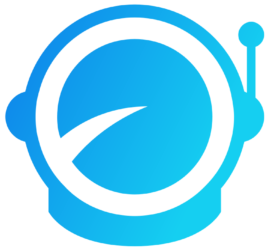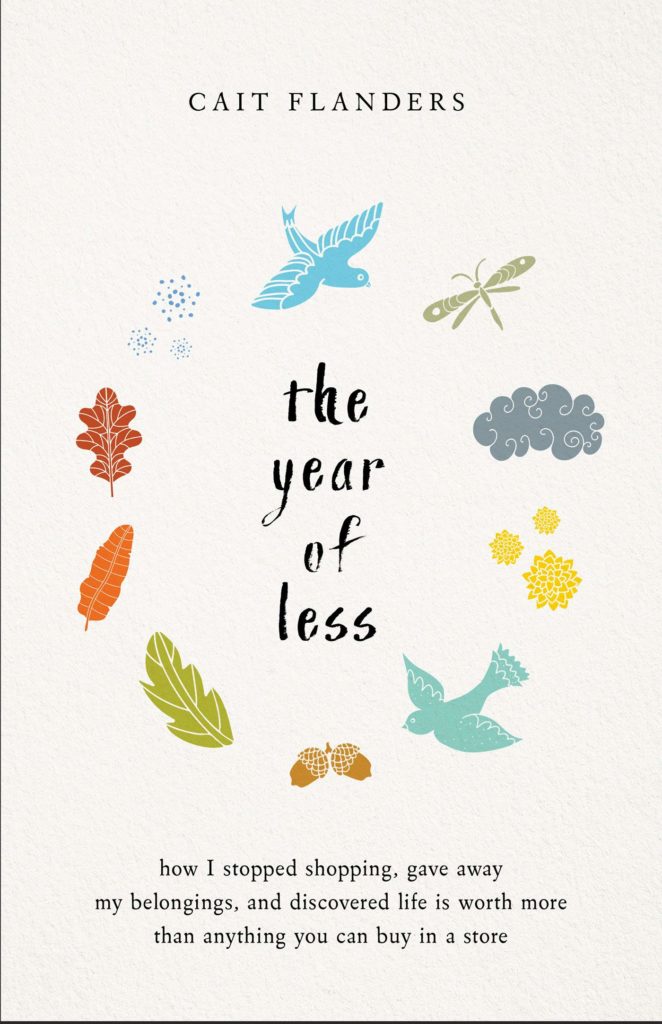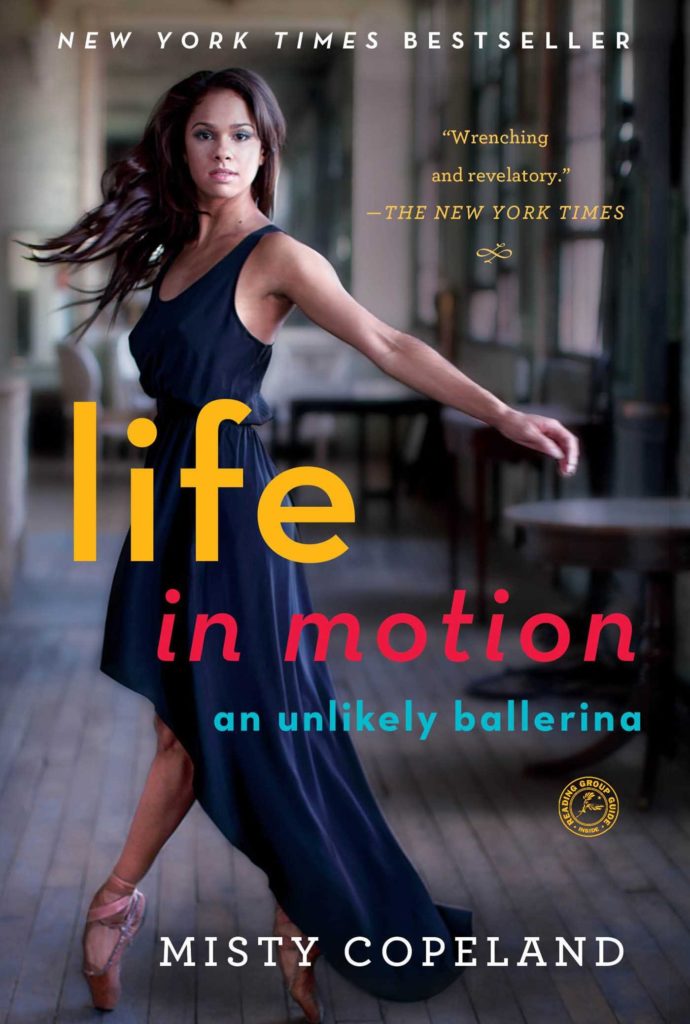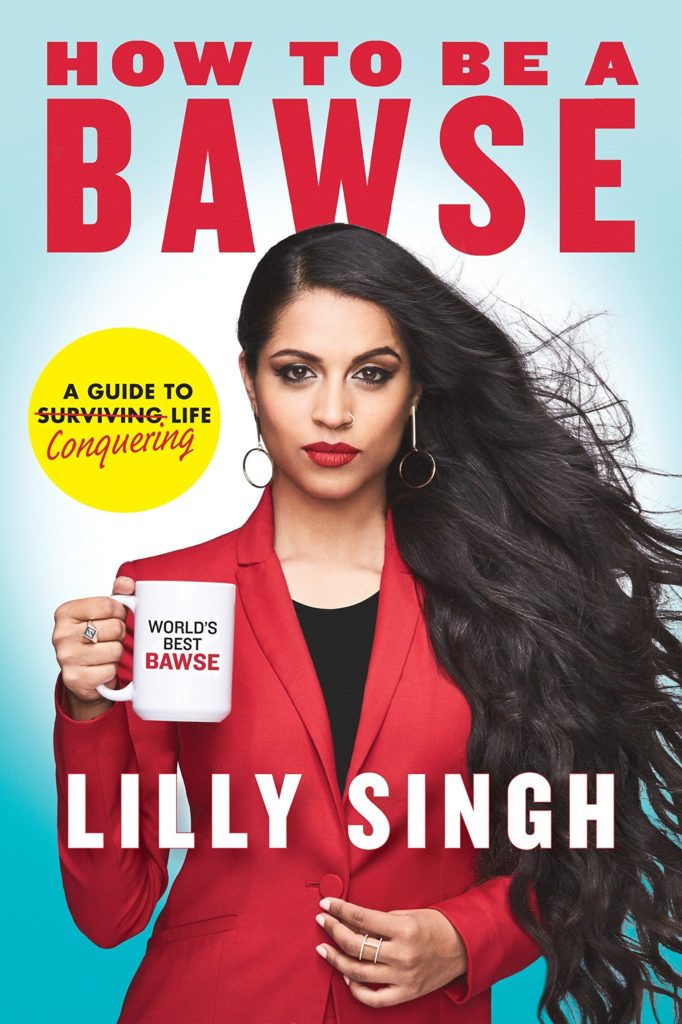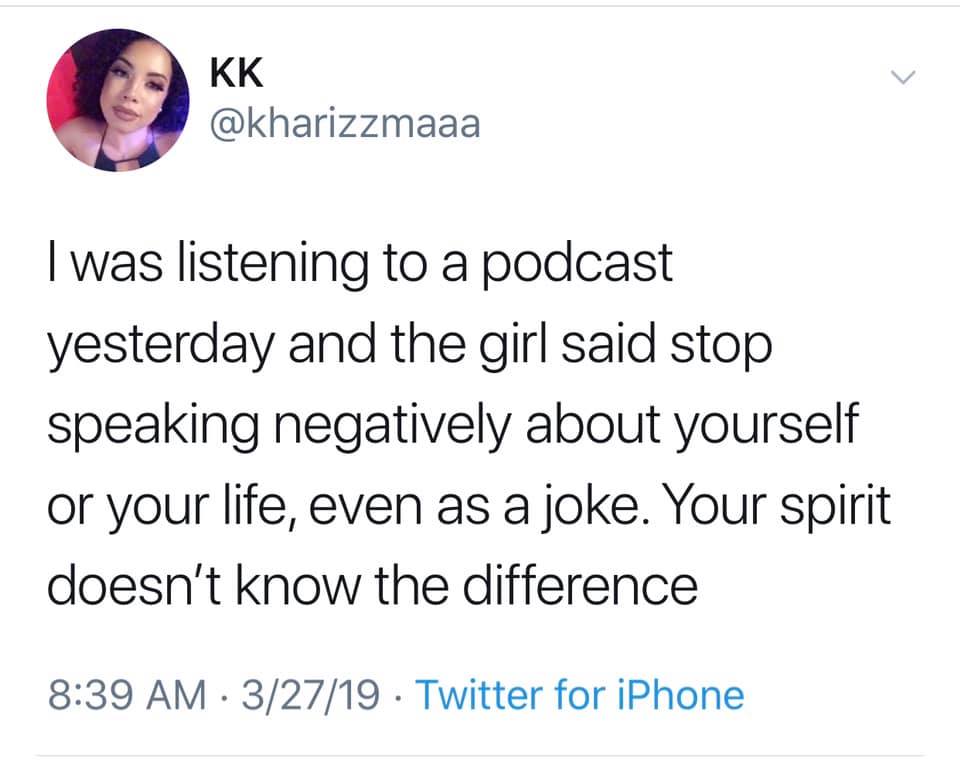
[This was written in April after I got some disappointing news.]
Last week, I found out that I didn’t get the NSF postdoc fellowship. Even though I figured I didn’t (since winners were being announced 2-3 weeks before) it still hurt. I guess a small part of me was holding out hope. Oh well.
I know that ultimately I’ll be okay. I have a job next year. And even if it only ends up being a 1 year appointment, I feel like I can contribute a lot of good. I finally mustered enough courage to look at the reviewer comments and they were…okay. It didn’t feel great, but it felt like we gave it a decent shot. With a little more polishing, I think we could have a real shot next year.
My mom called me right as I was reading the comments and sending them to my postdoc advisor. I told her how I got dinged for not being a human researcher.
I read her this exact reviewer comment:
“The candidate has previously done research in voles, but not humans. Thus, the project represents a completely new direction for her research. Thus, she does not yet have the research background that will be necessary to successfully complete the project.”
“WHAT?!?!” she yelled through the phone. “I can’t believe they said that about you; how could they say that?”
I was totally caught off guard by how angry, upset, and genuinely hurt she was. I told her this comment was very mild. It was constructive and to the point without being too personal. She insisted it was personal. I finally said, “Mom, reviewers have said way worse and way meaner stuff about me and my work during peer review. This is honestly kiddie stuff.”
As I was trying to reassure her, I could tell she was perplexed by how cavalier I was about receiving these reviewer comments. I was thinking to myself, “Doesn’t she know this is a huge part of my job? This literally happens all the time.”
Then I realized, no she doesn’t…
BECAUSE WE NEVER TALK ABOUT OUR FAILURES!
I distinctly remember posting to social media when I submitted my first manuscript, and then nearly a year later posted again that said manuscript was accepted for publication. What I conveniently left out is the part where the first prestigious journal we sent it to tore it to shreds in the review process and rejected the paper. After reading the reviewer comments, I didn’t even open the manuscript to revise it for 2 months. It was that painful. Then I was able to take the reviewer feedback, substantially revise and rewrite the manuscript, and send it to a slightly less prestigious journal. On this second try, all was well and it got accepted after minor revisions.
But we skip the ugly parts, the vulnerable parts. The parts that make us question if we really have what it takes. The parts that make us feel like were just faking-it-until-we-make-it and now we’re exposed and are gonna to get found out. The part where a little voice says, what are you even doing here? Why did they even let you in here?
Those feelings are real and we hide them. But you know what? When we bury our failures it only creates more shame. So I say let’s start talking openly about our disappointments and stop suffering in silence.
To that end, I’m publishing portions of the reviews from my failed NSF project proposal here. I’ve removed jargon and pertinent details about methods for clarity and brevity (and cause people be stealin’). I want you all to see that our shortcomings in performance don’t define us, and we have to keep on trying.
I’m so thankful for my postdoc advisor. She is very level-headed and wise and is honestly such a strong leader with such a fierce confidence in my abilities that it’s nearly impossible to doubt myself.
After receiving the comments, she emailed back: “Honestly, these are good and informative. The major issue is streamlining the project, which I think I we have better ideas about. Let’s meet and regroup.”
I’ll also note here that I told her via text that I was anxious about reading the reviews and hadn’t looked at them since getting the rejection. She said, ”Don’t even worry about it, you don’t have to look at them. If you want just forward them to me.”
Gah, what a gem!
Thanks Marlen, you da real MVP.
Without further ado…

Scoring Scale for Proposals: Excellent, Very Good, Good, Fair, Poor
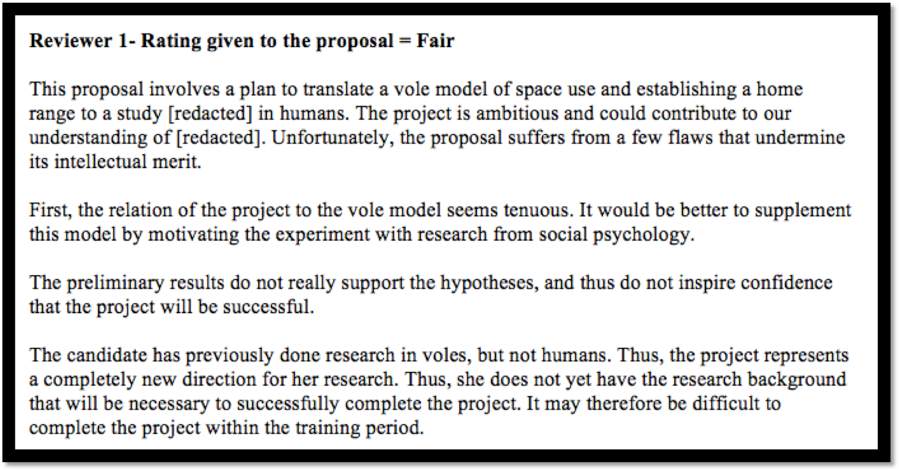
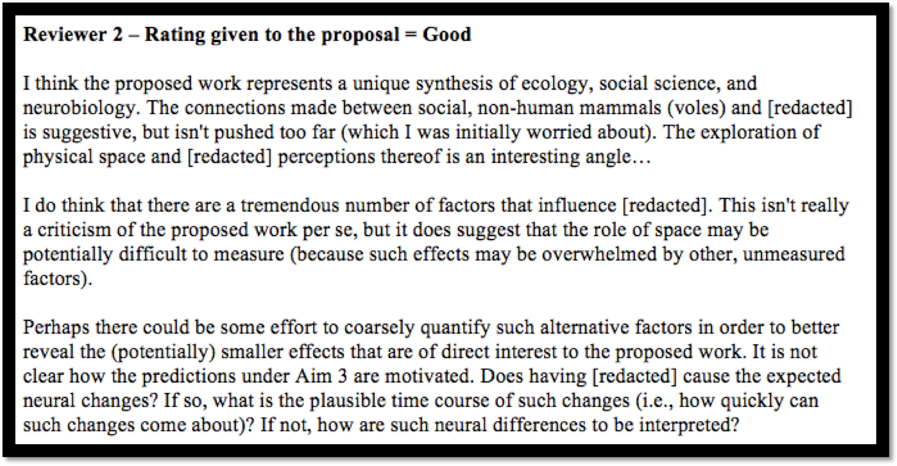
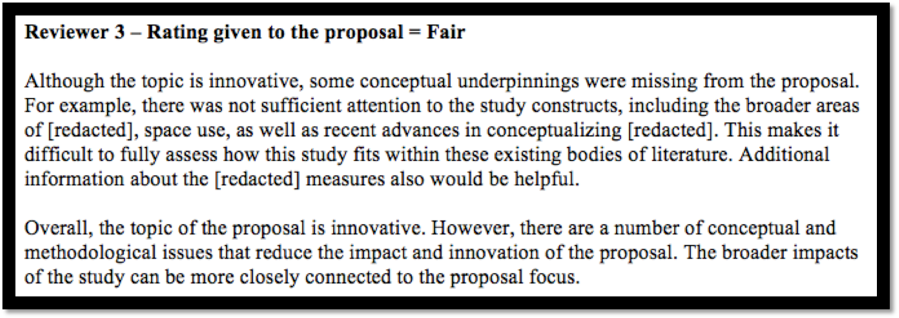
And that’s all she wrote!
Oh well. Time to go back to the drawing board and make a stronger proposal. This is just how science works. You create something, you get constructive and critical feedback, and then you iterate.
Failure is a necessary part of that process. So here’s to sharing our failures and continuing to press forward!
Let’s get to work!

